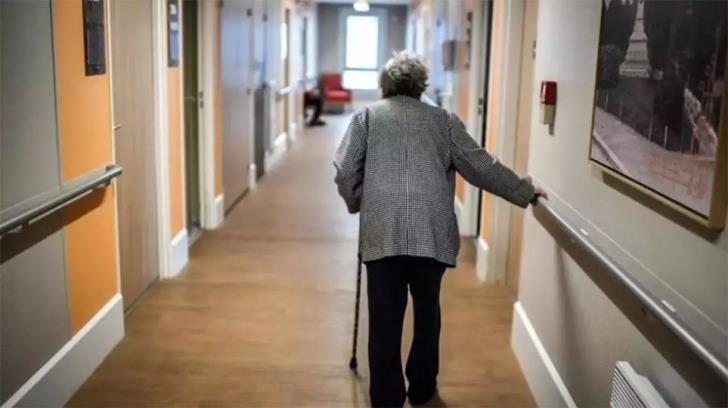More and more people are expressing their concern over the quality of care provided in nursing homes, as well as about the fact that residents are just left to spend their days in front of a TV set without receiving essential assistance.
Over time, various complaints have been made public: old people tied up in bed because they are restless when they only needed a glass of water; some had bruises, others minor injuries, while others were missing tufts of hair.
Inhuman and anachronistic practices have the norm in Cyprus as in some cases indifferent and insufficiently educated people are employed as caregivers.
Special pathologist and gerontologist Marios Kyriazis described most nursing homes in Cyprus as “waiting rooms for death.”
Demos Antoniou, president of the Cyprus third-age observatory, noted that the neglect and abuse of old people is a frequent phenomenon, with the tolerance of the state, society and relatives.
Anastasia Anthousi, Deputy Minister of Social Welfare, told Phileleftheros that she is aiming to pass a draft bill that will regulate the operation of nursing homes, before the end of this government’s mandate.
Pathologist and gerontologist Marios Kyriazis noted that the most serious incidents of abuse against elderly people are reported to the police.
What he often sees are bruises or minor injuries but as he noted, “it’s the old people’s word against the nursing home’s employees.”
Dr Kyriazis also said, “many people are tied in their beds because they are restless. The whole incident may have begun due to the fact that the old person was thirsty, dehydrated, and as a result, became anxious.
An uneducated caregiver sees this and thinks the old person is restless so he decides to tie them up.”
As the doctor said, “there are many reasons an older person might become restless and confused but caregivers always prefer the easy solution and they tie them up.”
Lack of trained caregivers
Another level to the problem is the neglect of elderly people, Dr Kyriazis added which often happens due to the ignorance of caregivers, who are not properly trained.
They see older people not eating and they pressure them, not realising that the person might not be able to swallow or have other health problems.
As he said the state has to deal with these phenomena since there is legislation that, on the one hand, is not enforced and, on the other hand, is not effective.
Checks and stricter regulations
Among the measures that have to be taken, he said, is the evaluation of nursing homes and of each caregiver separately.
Caregivers must have a diploma and a minimum level of education, while their training must be repeated regularly, he said. Furthermore, caregivers must be annually evaluated and if the results are not good, the person must undergo training again.
Criteria must be set for the nursing homes and strict checks must take place regularly to see whether regulations are respected, otherwise, a penalty must be imposed. Five or six times a month, impromptu checks must also take place, Dr Kyriazis said.
Nursing homes must include activities in their schedule, for example, they can receive visits from schools during which older people can exchange views with students, talk about their lives, and give the children advice.
Abuse and neglect at home
He also said that incidents of abuse are not only seen in nursing homes but also with caregivers in private homes.
Assistance and support to old people in their homes are needed, as well as access to special equipment like chairs and accessible bathrooms.
Demos Antoniou, president of the Cyprus third-age observatory, agreed that there is a problem in the provision of care both in nursing homes and in homes. He cited data from the Association for the Prevention and Handling of Violence in the Family (SPAVO) which in 2017, received 726 phone calls from people aged over 65, saying they were victims of violence at home either by caregivers or by relatives.
He also expressed the view that during Covid-19 lockdowns, these incidents increased.
He noted the lack of a National Strategy for the Third Age adding that an effort toward this direction is taking place by Anastasia Anthousi, Deputy Minister of Social Welfare.
Regarding abuse at home, Mr Antoniou said that families must pay more attention and spend more time with their parents so that they will be able to see any signs of abuse.
He stressed that an information campaign about the third age must take place so that citizens will learn how to recognise signs of abuse.
Caregivers must receive proper education, Mr Antoniou said so that they will be in a position to provide home care to persons who cannot afford to go to nursing homes.
The bill regulating nursing homes is at an advanced stage, Deputy Minister Anastasia Anthousi says.
It will regulate the operation of nursing homes, impose administrative penalties, ways to suspend the operation of a home where illegalities have been detected, the way inspections will take place and set criteria for the hiring of staff.
The aim is to submit it to Parliament before the end of her mandate.









